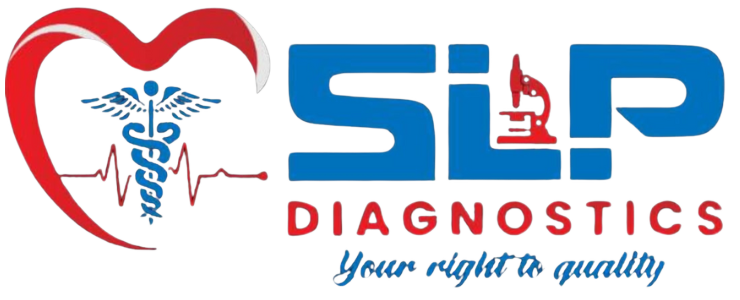Understanding how cancer marker tests work is crucial for anyone looking to comprehend cancer diagnostics better. These tests serve as valuable tools, helping in spotting cancer cells or molecules that could indicate the presence of cancer in the body. Knowing what these tests are and how they function can provide insights into early detection and treatment.
Understanding Cancer Marker Tests
Cancer marker tests are important in the medical field for diagnosing cancers. These tests help doctors detect markers, which are substances either produced by cancer cells themselves or by the body in response to cancer. By measuring levels of certain proteins, cells, or molecules, these tests give insights into the body’s condition.
The importance of these tests lies in their ability to catch cancer early, which is crucial for increasing the chances of successful treatment. Early detection often leads to better survival rates.
There are different types of markers:
– Proteins: These can be found in blood, urine, or other tissues. They are often produced by tumors or other cancer-related cells.
– Cells: Cancerous tissues might release certain cells into the body, which can be indicators.
– Molecules: Other molecular markers from cancerous tissues can indicate the presence of cancer.
Recognizing the role these marker tests play in early diagnosis can help both healthcare workers and patients in creating effective treatment plans.
The Role of Cancer Marker Tests in Early Detection
Cancer marker tests are pivotal in spotting cancer at its earliest stages. This allows doctors to act quickly and plan the best treatment strategies. Early-stage detection helps in managing cancer more effectively and gives patients more treatment options.
Several common markers are used in diagnostics, including:
– CA-125: Often used for ovarian cancer.
– PSA (Prostate-Specific Antigen): Commonly linked with prostate cancer.
– CA 19-9: Associated with pancreatic cancer.
These tests can greatly influence the patient’s treatment path. If cancer is found early, doctors can personalize treatment plans, focusing on what’s most effective for the individual. This tailored approach might include different medications, therapies, or medical procedures suited to the patient’s unique situation.
By using these tests, doctors can refine treatment options quickly. The early detection and tailored treatment not only help in slowing down or stopping the disease but also provide the patient with a structured and hopeful path forward.
Advancements in Cancer Marker Testing Technology
In recent years, technology in cancer marker tests has advanced significantly, helping doctors diagnose cancer more accurately and reliably. These technological improvements mean doctors can now detect a wider range of cancers and use more refined diagnostic methods.

Modern techniques have expanded the accessibility and scope of these tests. Today’s advancements allow for better accuracy, meaning that results from these tests are more dependable than ever before. This newer technology reduces the chance of mistakes and enhances the capability of determining cancer presence early on.
SLP Diagnostics in India is a leader in this field. They provide cutting-edge solutions, ensuring that their tests remain at the forefront of innovation. Their commitment to excellence means patients can depend on receiving high-quality diagnostics, which plays a crucial role in early-stage cancer detection and subsequent treatment planning.
Limitations and Considerations in Using Cancer Marker Tests
Even though cancer marker tests are incredibly helpful, they have some limitations. It is important to remember that these tests should be used alongside other diagnostic methods. They alone cannot provide a definitive diagnosis, which means relying solely on these results might not tell the full story.
Here are a few limitations and considerations:
– Not 100% Accurate: These tests might produce false positives or negatives, especially if non-cancerous conditions influence the results.
– Misunderstanding Results: People often misinterpret results, leading to unnecessary anxiety or fear.
– Emotional Hesitancy: The idea of undergoing these tests can cause stress and reluctance due to a lack of understanding or fear triggered by ambiguous results.
It’s essential to consult with healthcare professionals to interpret the results accurately. These discussions can clarify any confusion and help form a comprehensive view of one’s health.
The Importance of Regular Cancer Screenings
Getting regular screenings with cancer marker tests is very important, especially for those at higher risk. Routine testing helps in catching cancer before it progresses and influences outcomes significantly. These tests can be key to maintaining health and ensuring timely treatment.
Here’s a breakdown of the testing process:
1. Blood Draw or Biopsy: These procedures are generally quick and may result in temporary discomfort, but they’re crucial for the accurate measurement of markers.
2. Result Interpretation: Once the tests are conducted, healthcare professionals review and explain the results, emphasizing any actions needed.
Regular cancer marker screenings bring immense value by facilitating early intervention. Engaging in open dialogues with healthcare providers about your screening plans is vital for making informed choices. Patients who discuss these options often feel more assured, as they are actively participating in their health care journey.
Regular screenings form an effective strategy in promoting wellness and prolonging life, particularly for at-risk individuals. They ensure that if cancer develops, it can be managed efficiently and with the best outcomes possible. Prioritizing these screenings is a proactive step towards a healthier, more secure future.
In conclusion, understanding cancer marker tests and staying informed can help you or your loved ones seek the right medical advice and intervention at crucial times. SLP Diagnostics remains a trusted name in providing reliable testing, ensuring every patient gets access to crucial early detection tools.


